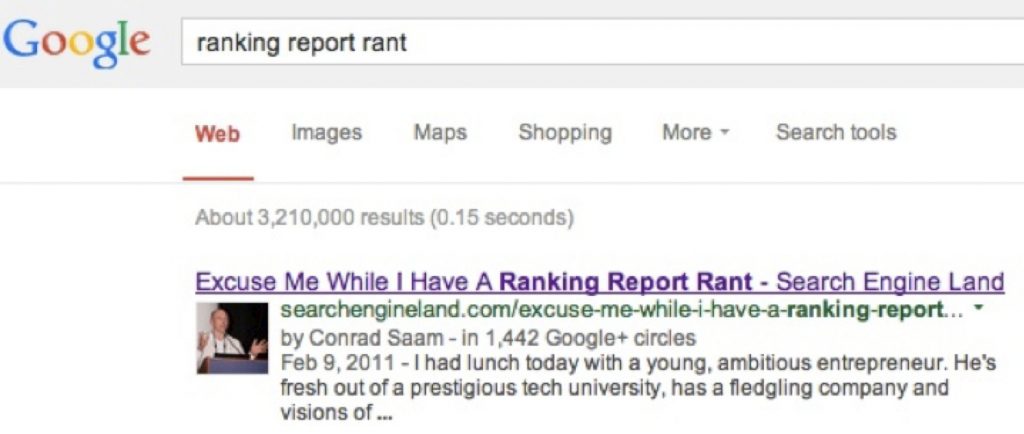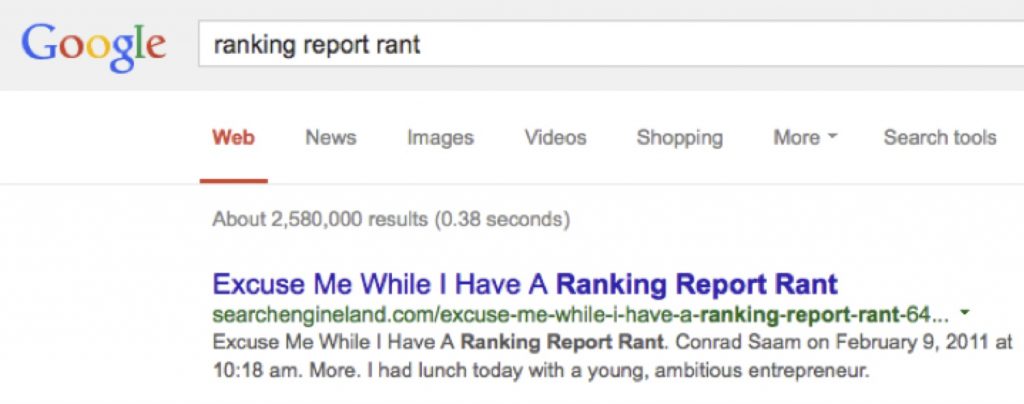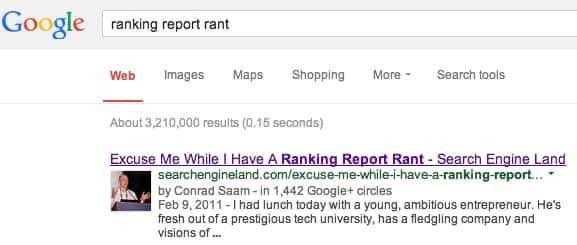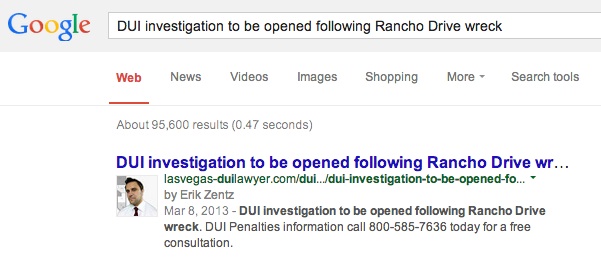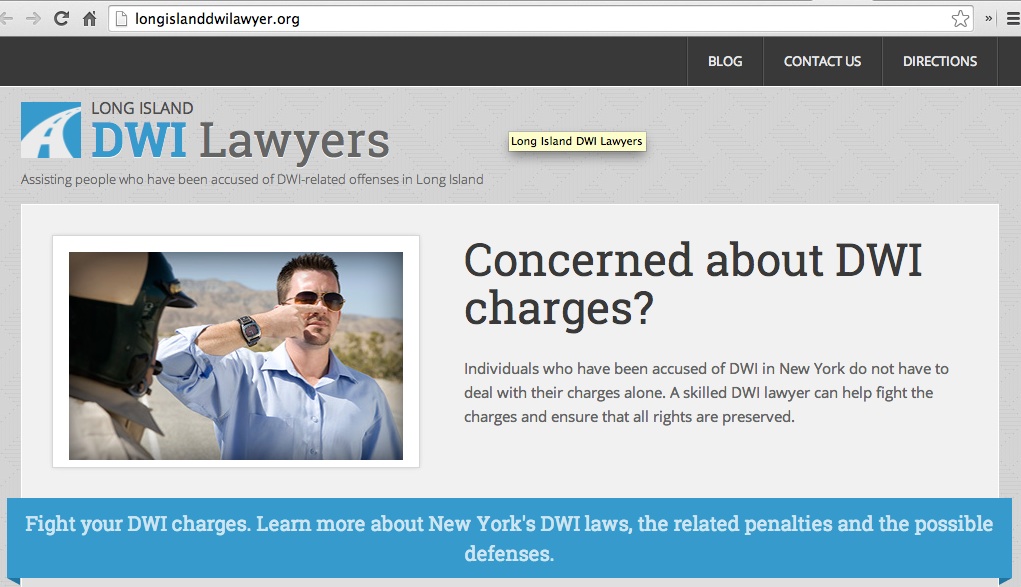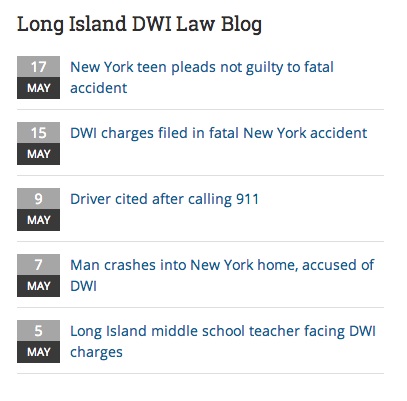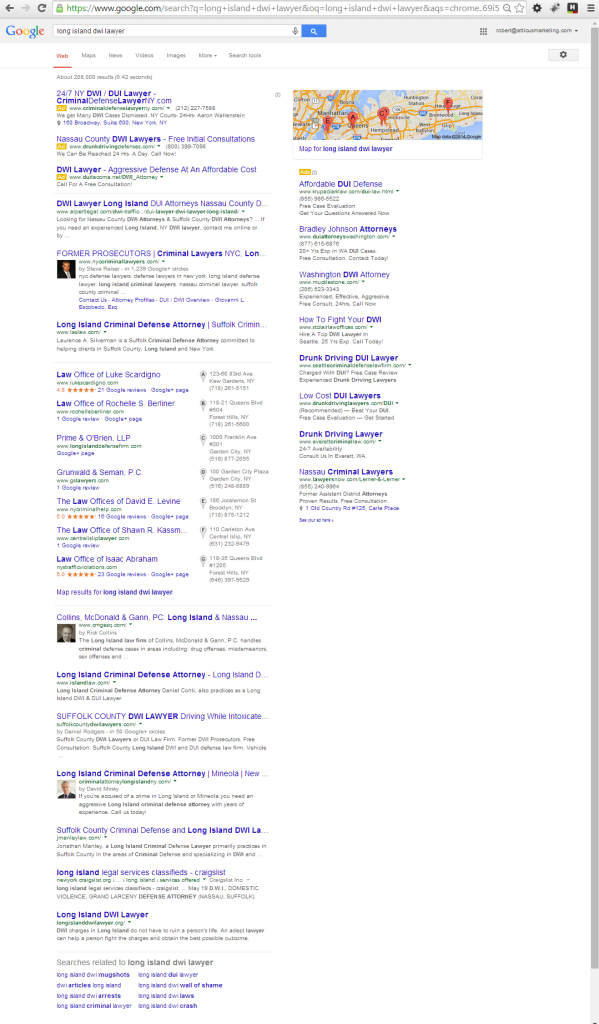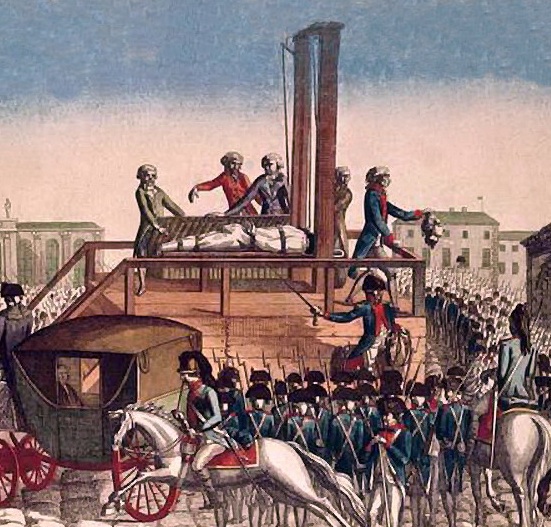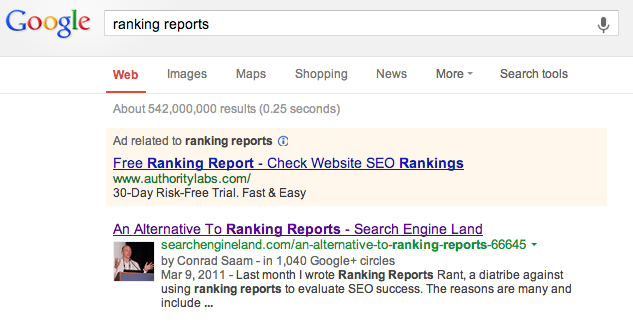Last week, John Mueller over at Google announced authorship would no longer be shown in search results. In case you forgot, authorship was the nifty gizmo that made your picture appear in the SERPs next to content you wrote. Or at least, it did until this past June when Google removed the photo and just left your name.
Here’s what Google Authorship looked like in its glory days:
And here’s what it looks like with the removal of authorship:
boo boo! Sad Trombone . . .
Why did Google (say they) got rid of authorship?
In their analysis of authorship, Search Engine Land cites two reasons. First of all, a low adoption rate by authors. Not many authors were implementing authorship code, suggesting that many content providers weren’t interested in it or didn’t understand how to use it. Secondly, a low value to searchers. Although authorship was originally intended to provide users with another indication of the validity of your content, it turns out that seeing your pretty face wasn’t really helping decision making.
Why do (we think) Google got rid of authorship?
Generally at Mockingbird, we take most of what Google says at face value. BUT – – – let me uncharacteristically offer a contrarian view: Google got rid of authorship because we (the scummy, spammy) SEO industry transformed it from a positive quality signal into a spammy marketing tactic. Especially within legal – where social media marketing consultants and SEO hacks desperate to demonstrate some tangible benefit to their clients went overboard with authorship. Remember how FindLaw spammed authorship by attributing blog posts from old clients to their new clients? Hardly a legitimate quality signal and FindLaw wasn’t the only one. My take is that it is highly possible that Google has removed the tangible benefit of authorship (that ego-boost of your picture right within the results that made lawyers salivate and social media marketing something to do) but has quietly held on to the concept of author rank. Getting rid of “authorship” is going to remove (some) of the low quality signals that SEOs foisted into the author rank concept.
What does this mean?
Thankfully for website owners, Mueller says, “removing authorship doesn’t seem to reduce traffic to sites,” so you shouldn’t be too concerned on that front. However, folks in the SEO community have been spending time and energy on this since 2011, when authorship was first introduced.
Authorship was always about much more than the silly little picture . . . and for our clients we’re staying the course – building the authority of individuals.
